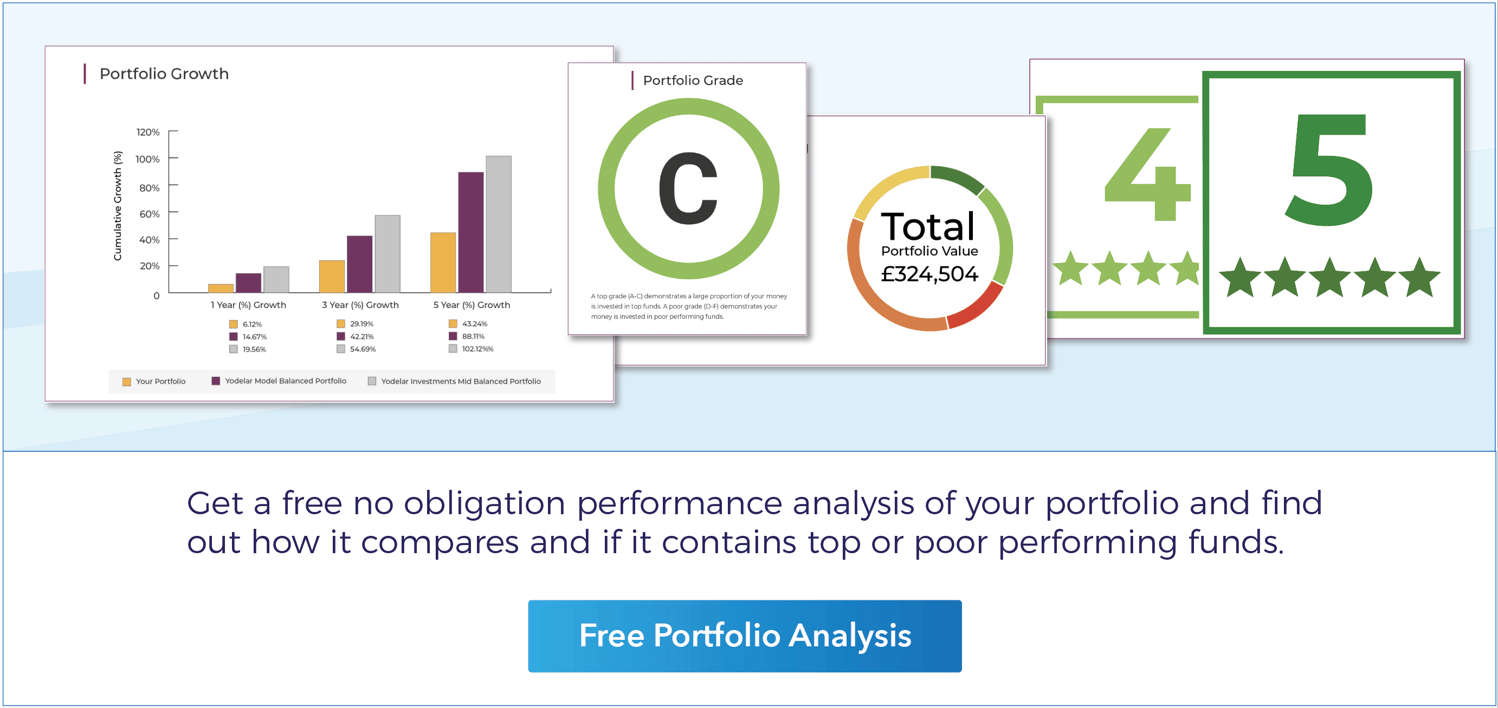Periods of market volatility, like those we’ve seen over recent weeks, will undoubtedly be unsettling times for most investors. The risks of incurring losses can make holding investments difficult to bear and create a level of anxiety that can result in emotional rather than considered decisions.
Having a structured and defined investment strategy can be the most important factor in coming through periods of uncertainty and poor market performance. But the stresses caused when investment markets drop can sometimes cause investors to question if they are on the best strategy.
In this report, we look at how investors can best manage periods of high volatility and market uncertainty and help to ensure their portfolios are on track to hit their long-term objectives.
Remaining Calm During Stressful Market Conditions
Sudden market moves can be testing times for all investors as we get a stark reminder of what investment risk really feels like. Short-term volatility, whilst unpleasant, should not detract your focus from the long-term objectives of your investments.
Your focus should be on ensuring that the inevitable bumps along your investment journey do not force you off course. When markets are falling and it seems like everybody is selling, staying invested can seem daunting and dangerous. Equally, when markets are rising and everybody seems to be buying, keeping a level head and ignoring the crowd can be difficult.
We have often highlighted the importance of having a diversified portfolio in managing investment risk but it also has a big role in helping investors manage their reactions to markets. A well-diversified portfolio should shield you from the full brunt of sharp falls in a particular market, but will also mean that the moves in your portfolio are more muted than attention grabbing headlines may lead you to believe. A well-diversified portfolio can make it easier to take the decision to stay invested rather than follow market moves.
For example, investors who decide to sell off a portion of their portfolios due to a sudden market downturn with the intention of re-entering when the downturn ends can result in them missing out when markets begin to rise. This is essentially trying to time markets. Timing the market will only work if it is timed right, but timing it right requires luck, which should never be a strategy. Indeed, often such decisions can result in greater losses over the long term.
Volatility Can Offer Opportunities
For those investors with cash to invest, the recent market moves may create opportunities. No investment strategist has the crystal ball to tell you whether you are buying at the bottom of any dip or the top of any peak. As markets have fallen, the best you can know is that you aren’t at the top. The short-term ride may continue to be bumpy, but for those with the composure to get invested, the prospect of not buying at the very top of a market would boost longer-term returns.
In contrast, those who are invested when markets drop often question whether they should stick or sell, with fear often resulting in investors making decisions to sell which in the long term, may not be 0in their best interest long term.
For example, anyone who was invested in the popular Baillie Gifford American fund for the 5 year period up to 15th February 2021 would have grown their investment by a huge 569.14%. Translated into monetary terms, a £10,000 investment would have grown to a value of £66,914 (not including fees).
However, many markets experienced a sharp decline in February 2021 which lasted until May 2021. During this time the Baillie Gifford American fund experienced negative growth of -26.29%, which although significant, pales in comparison to the long term gains the fund has consistently achieved. Yet during this volatile period, many investors made the decision to exit this fund, some for valid strategic reasons but many did so because of the stress of watching the fund's value fall. But, in the period between 14th May and 26th July, the fund grew by 31.95%, which serves as an example as to why investors should invest in quality funds and stick to them.
Of course, many investors are not invested in quality funds which investors can identify through a performance analysis of their portfolio.
Volatile markets may cause a period of sharp decline, but as history shows, the market rebound is often greater than the fall, and as mentioned earlier trying to time this is practically impossible, which is why often the best strategy is to ensure you are invested in quality funds and entrust in your existing plan.
Unfortunately, many investors are not invested in quality funds which over the long term can stunt portfolio returns.
Avoiding Impulsive Decisions
Understanding that your reactions to markets can be dangerous to your wealth doesn’t make it any easier to leave your portfolio alone. Giving into temptation can feel comforting and boost our sense of having control.
In investing we often see that action for action's sake proves more harmful than the status quo. Research in Behavioural Finance finds that the more frequently we trade the more we reduce our financial returns on average, not only because of the costs of trading but also because we react very differently to gains and losses.
Rebalancing Your Investments
Rebalancing your portfolio can satisfy the need to make emotional investment decisions as it follows a healthy investment practice that helps to ensure your portfolio is correctly aligned to your designated asset allocation.
The reason for rebalancing is that over time the balance of a portfolio can shift as each asset class performs differently resulting in a change to the percentage of your investments that are invested in any one asset class. If investors feel the urge to act, the small changes which come from rebalancing a portfolio can be one way to take control of the situation. At a time of stress, this embeds the good behaviour of aligning the percentage of your portfolio to that which it was intended.
Avoid Checking Your Portfolio Performance Every Day
Just like watching the news every day, checking your investments every day will do nothing but cause you stress. Fund values fluctuate. Sometimes they fluctuate a lot. But they will normalise at some point and all those numbers in between won’t mean anything. If you have the right strategy in place, you don’t have to worry about what your portfolio does on a temporary basis.
Maintaining Trust In Your Investment Plan
A well-crafted plan, tailored to your specific timeline and objectives, helps protect you from making ill-advised transactions at inopportune times, including selling based on fear during sharp downturns as well as being seduced into taking excessive risks during strong advances. What’s more, if you’re operating from a clear plan and strategy that you can adhere to in varying market environments, one that can sustain itself in downturns due to having adequate safeguards, you will likely be less compelled to make impetuous decisions that can compromise returns.
But just having a plan is not enough. You must be prepared to stick with it through thick and thin, despite the vagaries of market conditions. Turbulent markets can give rise to turbulent feelings. That’s why successful investing requires both financial and emotional capital.
Your investments need to be appropriately positioned as you move through any type of market environment, like having high-quality assets, appropriate diversification, suitable balance, and adequate liquidity. This way you’re poised to take advantage of opportunities as they come. That’s the financial capital. The emotional capital is discipline. To be a savvy investor, you cannot let emotions cloud important decisions, nor let fear or excitement prevent you from staying the course.
When You Should Consider Adjusting Your Strategy
Tumultuous markets also bring risk into perspective. In upward-moving markets, it’s easy to get lulled into complacency and satisfaction and attracted by the often higher returns of more adventurous strategies some investors can end up invested in strategies that, in the long run, are perhaps not best suited to their investment profile.
Bull markets increase confidence whereas Bear markets serve as gut checks, motivating one to assess and confirm whether their investment risk profile is appropriate or needs adjustment. If during a period of negative growth, the emotional stress and financial concerns are overpowering it is recommended you speak to an adviser to reassess your risk tolerance and investment objectives as it may be better suited that you invest in a lower risk strategy.
Long term investing is good investing
Many investors spend substantial time defining their investment goals and selecting an asset allocation to help them achieve those goals while also being mindful of their tolerance to risk. To meet their objectives they must be able to stick with an appropriate investment plan in all kinds of markets, particularly when markets have dropped. However, it is also a time to reassess the quality of your portfolio by seeing how well your funds are holding up compared to their peers.
Markets do recover from downturns, although past performance is no indicator of future performance, market corrections can be healthy, and result in even stronger growth in the future. This is why holding a diversified portfolio for the long term makes good investing sense. It is time invested in the market, and not the timing of the market, which will dictate long term returns.














